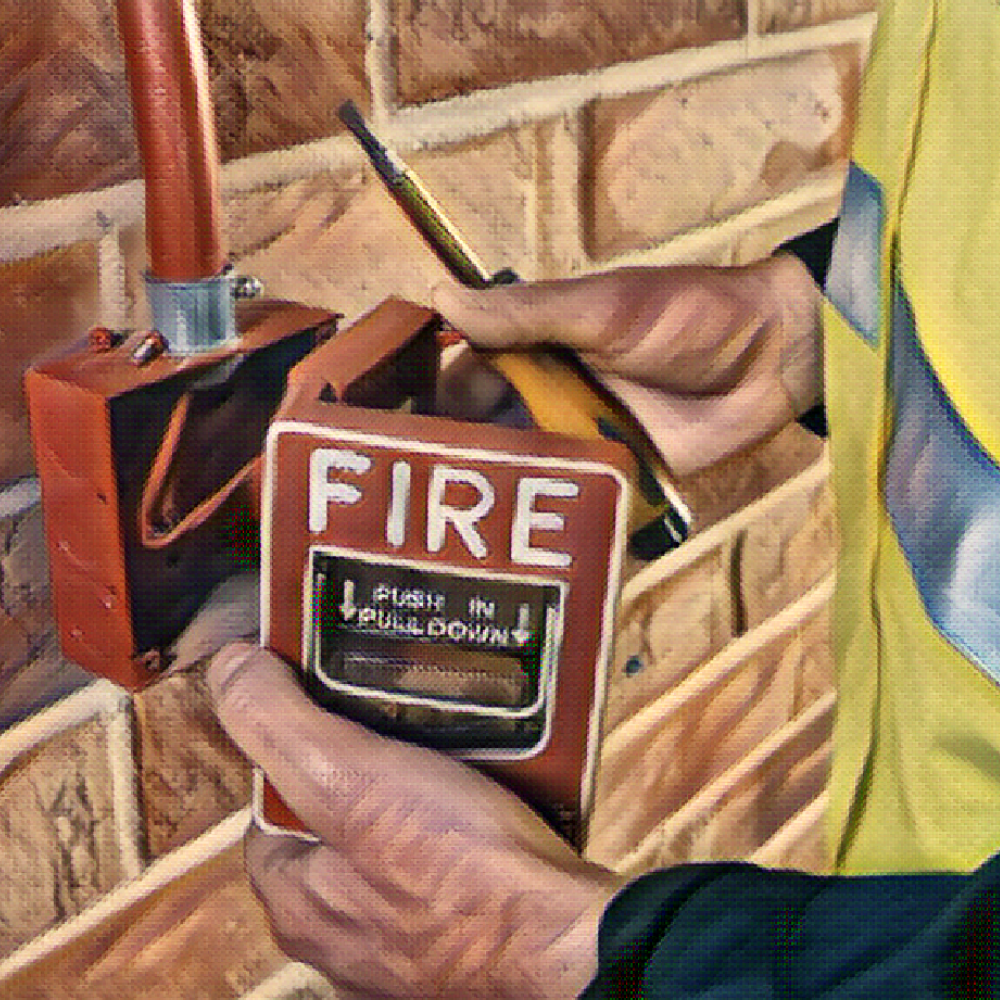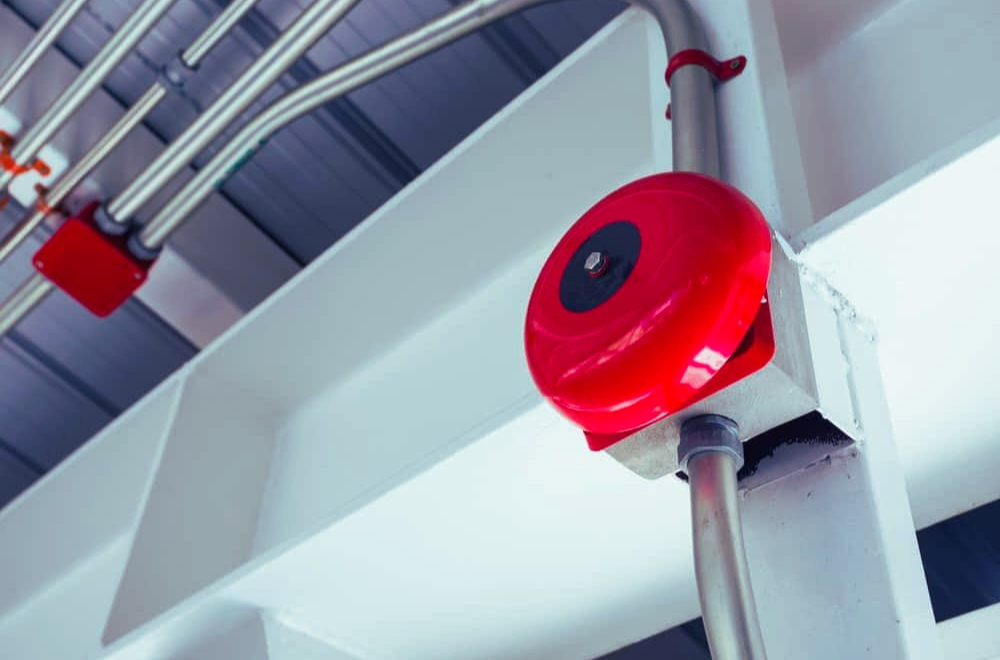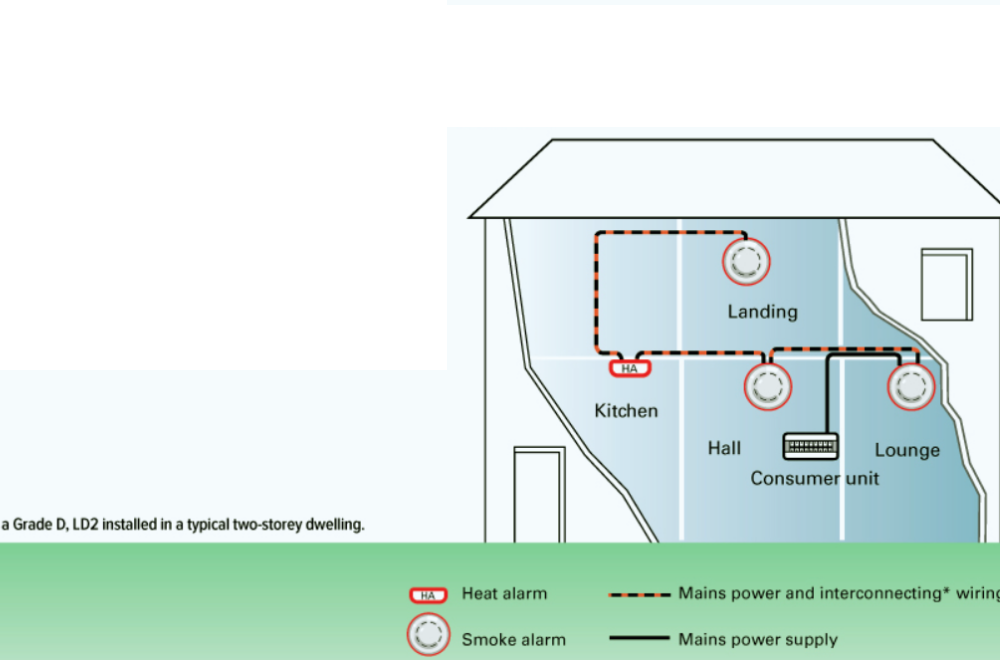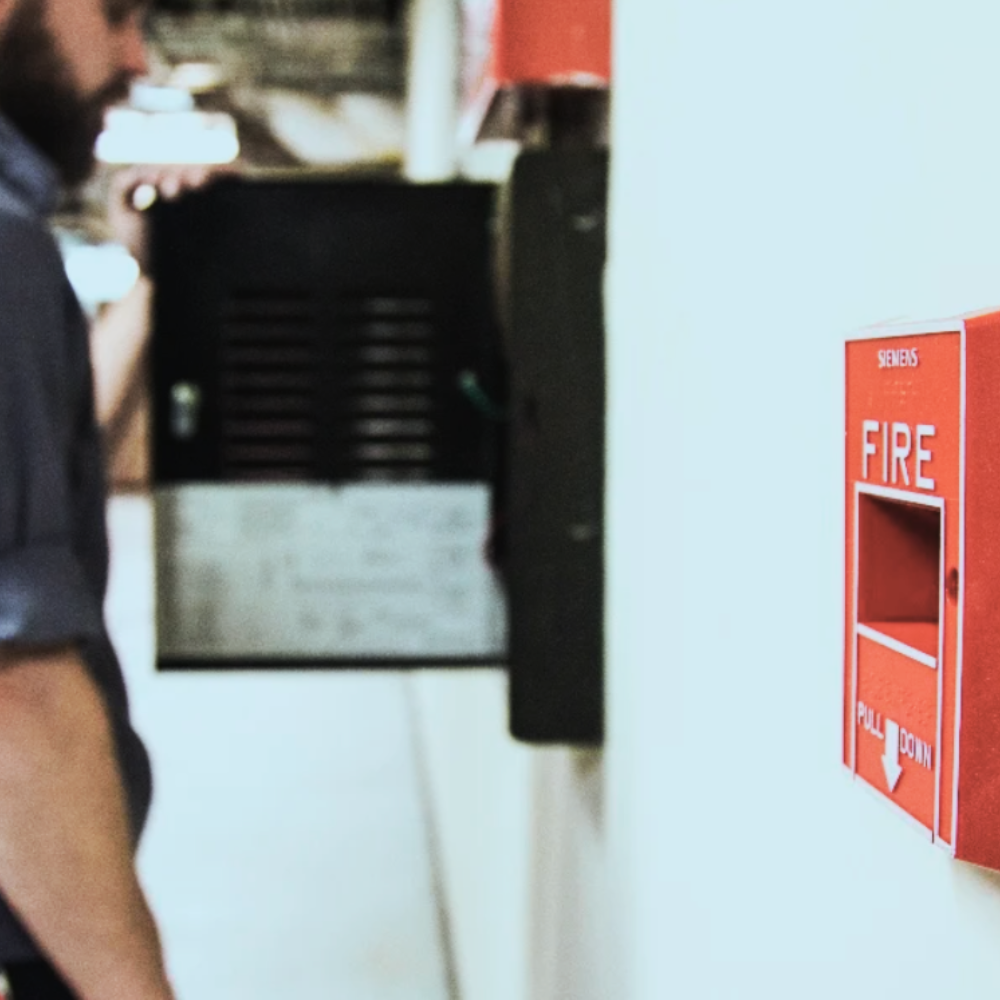
In accordance with BS5839, a landlord's property must have a fire alarm certificate. It is recommended that all types of detectors be examined by a fire alarm certified professional at least once a year. In addition, the fire alarm test should be recorded in the log book.
DAILY CHECKLIST OF FIRE ALARM
- The alarm panel is set up properly
- Any defect notifications must be addressed
- A visual check of the panel is performed
- Make a weekly sound alarm to ensure your sound gadget is operating correctly.
- If any problems are discovered, they must be reported to the appropriate maintenance team, and a record of the mistake must be kept.
During a fire alarm inspection, there are 2-grade rules that should be observed

1. Grade A Fire Alarm System: The parameters listed below should be examined for the grade A fire alarm system.
- CO2 Alarm Detector
- Bell or Alarm Sound Device
- Central Control Board
- Manual Call Board
- Smoke Alarm Detector
- Heat Alarm Detector

2. Grade D Fire Alarm System
- The majority of the time, a Grade D fire alarm system is coupled to smoke or heat alarms, and this arrangement is most often encountered in residential homes.
- For the comprehensive exam on the fire alarm certificate, you will need to work out for 6 months.
- Every six months, the fire alarm system should be thoroughly tested. A competent person must authorise the exam. The fire alarm evaluation should be kept up to date in line with section 6 of BS5839 part 1. You will receive a fire alarm certificate after you have completed your fire alarm testing in the proper manner.
Fire alarm certificate cost

On the fire alarm equipment, Do you need secure cable testing?
Your fire alarm system’s cabling should also be examined. It may be done every five years in conjunction with an EICR electrical certificate. The electrical installation condition report must be completed in accordance with British Standard BS7671.

FAQs About Fire Alarm Certificate in London
ask us
anything
What is a Fire Alarm Certificate?
A Fire Alarm Certificate is an official document confirming that a property’s fire alarm system has been professionally installed, tested, and maintained in accordance with BS 5839 standards and UK fire safety regulations.
Is a Fire Alarm Certificate legally required in London?
Yes. In London and throughout the UK, commercial properties and HMOs (Houses in Multiple Occupation) must have a certified fire alarm system with regular inspections and documentation to comply with the Regulatory Reform (Fire Safety) Order 2005.
Who can issue a Fire Alarm Certificate in London?
Only a qualified fire alarm engineer or accredited fire safety company can inspect, test, and issue a valid Fire Alarm Certificate.
How often should a fire alarm system be inspected?
According to British Standard BS 5839, fire alarm systems should be inspected at least every 6 months by a competent person to ensure full functionality and compliance.
How much does a Fire Alarm Certificate cost in London?
The cost typically ranges from £100 to £300, depending on the size of the building, number of detectors, and the complexity of the system.
What is included in a fire alarm inspection?
A professional fire alarm inspection includes testing all detectors, call points, sounders, control panels, and backup power supplies. Any faults are recorded, and a certificate is issued upon successful completion.
Do landlords need a Fire Alarm Certificate in London?
Yes. Landlords—especially of HMOs—are required to ensure working fire alarms are present and regularly maintained. A certificate serves as proof of compliance for fire risk assessments and insurance.
Can I fail a fire alarm inspection?
Yes. If your system is faulty, outdated, or improperly installed, you may fail the inspection. You’ll need to correct the issues and schedule a re-inspection to obtain a valid certificate.
How long is a Fire Alarm Certificate valid?
Fire Alarm Certificates are typically valid until the next scheduled inspection—usually 6 to 12 months, depending on your fire risk assessment and property type.
How can I book a fire alarm inspection in London?
You can book a certified fire alarm engineer online or through a local fire safety company. Ensure they provide a signed certificate upon completion of the test.